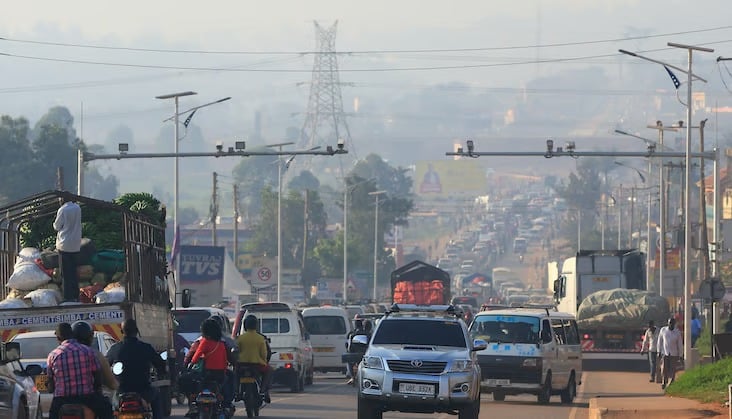Urgent Action needed to Curb toxic Vehicle Emissions in Uganda, Warns Study

Urgent and targeted action is needed to tackle Kampala’s alarming vehicle emissions problem, a new report has revealed.
The study, conducted by The Real Urban Emissions (TRUE) Initiative in collaboration with the United Nations Environment Programme (UNEP), has provided the first-ever real-world emissions data for vehicles on African roads.
Over 6,000 vehicles including passenger cars, motorcycles, minibuses, buses, and heavy-duty trucks were tested in real traffic conditions across Kampala, exposing widespread pollution levels far above accepted international standards.
Despite Uganda’s recent policy shift to adopt Euro 4 emission standards for vehicle imports, the findings reveal that enforcement remains lax and pollution from vehicles remains dangerously high.
According to the study, most of the tested vehicles exceeded Euro 4 emission limits, regardless of their age or country of origin.
Even newer petrol passenger cars, those under eight years old, were found to emit nitrogen oxides at levels 5.5 times higher than allowed. For diesel vehicles, the situation was even worse.
Heavy commercial vehicles and light commercial vehicles older than 15 years were pumping out three times more black carbon than slightly newer models. Commercial vehicles of all ages, surprisingly, consistently ranked among the worst performers.
Perhaps the most staggering revelation came from Kampala’s minibus taxis commonly used for public transport which were found to be among the city's most toxic emitters.
On average, these taxis are 25 years old, and those older than 15 years produced six times more black carbon emissions compared to those between 8 and 15 years old.
The implications for public health are dire. Kampala’s air pollution levels exceed the World Health Organisation’s limit for particulate matter by up to 12 times.
According to estimates, nearly one in five adult deaths from non-external causes in the city can be linked to ambient air pollution, much of which is caused by vehicle emissions.
During the Evaluation of real-world vehicle emissions in Kampala, Rob de Jong, Head of UNEP’s Mobility Unit, underscored the urgency of the issue.
“Data from the real-world vehicle emissions measurement highlights the critical need for effective regulation of both vehicle and fuel standards,” he said. “The findings provide policymakers with evidence to act and implement harmonised EURO IV standards across East Africa.”
Uganda’s Ministry of Works and Transport has started drafting a roadmap to roll out mandatory inspections for heavy-duty vehicles.
These will be aligned with regional emission standards and could see a transition from Euro IV to Euro VI standards by 2030.
Engineer Irene Bateebe, Permanent Secretary at the Ministry of Energy and Mineral Development, noted that clean energy and sustainable transport are becoming national priorities.
“This is why action is being undertaken through several ministries and agencies, from promoting electric mobility to enforcing vehicle inspections. These efforts will ensure cleaner air and a healthier population,” she said.
The scale of the problem, however, is not confined to Uganda. More than 140,000 vehicles are imported into the country every year, the majority being used cars from the global north.
Across Africa, over a million used vehicles are brought in annually, many with outdated or poorly maintained emission systems.
This constant influx is worsening air quality, contributing to climate change through excessive CO₂ and black carbon emissions.
For experts like Sheila Watson, Deputy Director at the FIA Foundation, the solution starts with accurate, independent data.
“Testing real vehicles on real roads shows us how damaging emissions are on people and the planet. This study arms policymakers with the knowledge and tools they need to act decisively,” she said.
Mallery Crowe, lead author of the report and a researcher with the International Council on Clean Transportation (ICCT), described the study as a turning point.
“Conducting the first-ever remote sensing campaign in Kampala was vital to filling the knowledge gap surrounding real-world emissions. The insights will be invaluable as Uganda works to operationalise policies to reduce pollution,” she said.
The findings of this report are not just a wake-up call for Uganda but for the entire continent. Without urgent action, vehicle emissions will continue to choke cities, harm communities, and undermine efforts to address the climate crisis.
Kampala’s air may be thick with fumes today, but with bold policy changes and firm enforcement, a cleaner future is within reach.



0 Comments